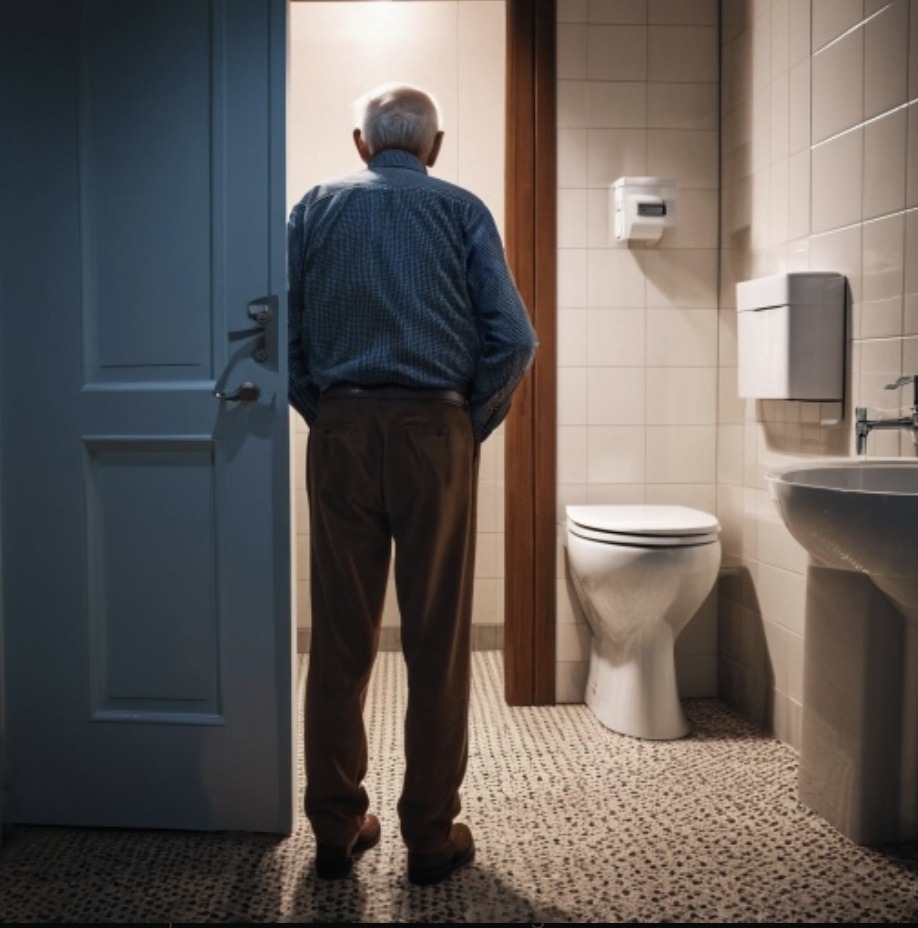When you have to go (in the middle of the night)
It’s not an easy subject to talk about, at least to talk about seriously, so sometimes we joke about it. We joke about how hard it is to get through the night without having to get up and go pee.
It’s called nocturia. Like pretty much every other bodily function, nocturia becomes more problematic as we age, particularly when we are past 60. While women have the problem, too, particularly older women, nocturia is much more common in older men.
It affects more than 50 percent of adults after age 50. It’s considered normal for a 60-year-old man to get up once, a 70-year-old man to get up twice and an 80-year-old man to get up three times a night.
It can be for different reasons. Maybe you’re drinking too much before bedtime, particularly if you’re drinking alcohol or caffeine. Or maybe you’re taking medications that contain a diuretic. Or you have one of a number of highly unpleasant health conditions like diabetes, high blood pressure or coronary artery disease that wake you up, and if you’re up, why not go pee? And it’s also possible that because of all those conditions, you may have unintentionally trained yourself to go pee when you wake up, even if you don’t have to.
But the most likely cause—particularly if you’re a man—is your prostate.
And here’s the paragraph with Too Much Info:
As we get older, the prostate enlarges. Urine passes through a small channel in the prostate on its way out of the body. With age, the prostate can enlarge and compress that channel. As a result, the bladder may not empty completely during urination and may fill back up quickly. The bladder can also become overactive over time from having to push hard through a tight prostate.
Doctors advise lifestyle changes, like drinking less at night. And there are over-the-counter pills that might help and prescription meds that may alleviate the problem, at least somewhat. Then, as a last resort, there’s surgery, the awful-sounding transurethral resection of the prostate, with, of course, its attendant risks.
Pretty much every man my age that I know has the problem. I—and I know I really shouldn’t admit this publicly, because, surely, I will be jinxing myself—don’t. I almost never have to get up at night to pee.
In my circles, the subject of not sleeping through the night because you have to pee arises more often than you might think. During those discussions, my friends are amazed that I am not one of them. My doctors are surprised. After reading about nocturia, I’m pretty astonished as well.
It’s not that I don’t wake up regularly during the night (another sign of getting older). I do that a lot. It’s that when I do, I don’t have to go. And the need to go is never the reason that’s waking me.
I know I’ve been lucky so far. But I also know my luck probably won’t hold out. Nocturia pretty much comes for us all.
And it can be serious in addition to being irritating. Not being able to get back to sleep after a visit to the bathroom obviously can affect our overall health.
But of all the conditions we face as we get older—the life-threatening ones, the life-ending ones—somehow having to go to the bathroom in the middle of the night seems to pale just a bit in comparison.
Which is why, sometimes at least, we can still joke about it.


